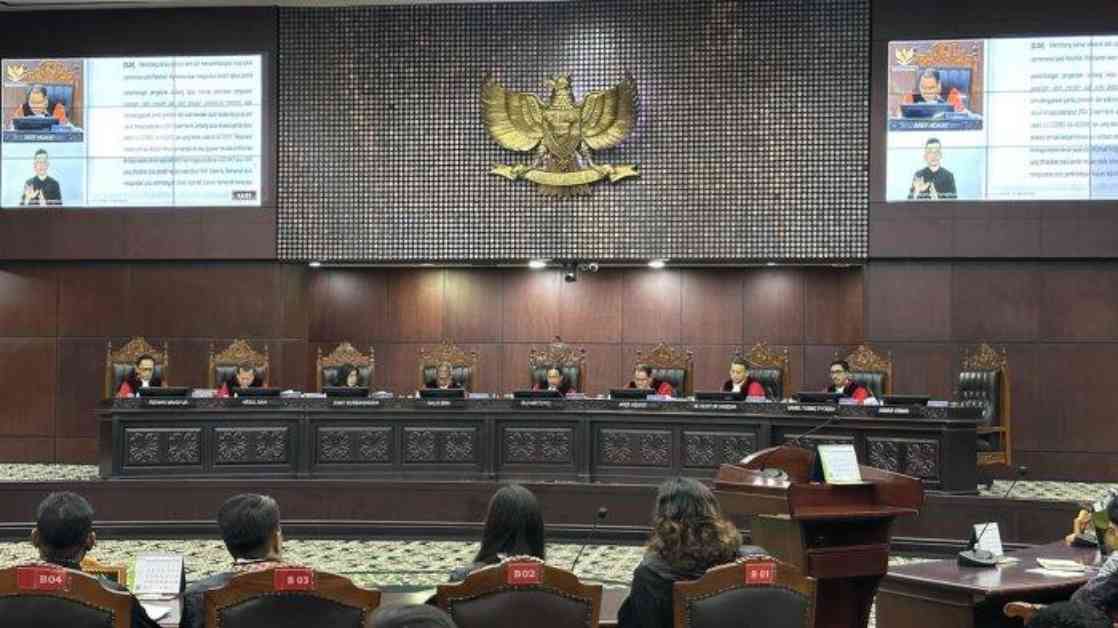Ketua MK Suhartoyo Tegur KPU Sumut Terkait Bukti Data Pemilih Pilkada
In a recent court session at the Constitutional Court (MK) in Jakarta, Chairman Suhartoyo reprimanded the legal representative of the North Sumatra Election Commission (KPU Sumut), Unoto Dwi Yulianto, regarding the lack of evidence supporting voter data in the gubernatorial election dispute in North Sumatra.
During the hearing of case number 247/PHPU.GUB-XXIII/2025, Unoto claimed that the voter turnout in the 2024 gubernatorial election in North Sumatra reached 68%. However, when asked by Suhartoyo about the source of this data, Unoto admitted that it was based on news reports and had not been submitted as evidence to the Constitutional Court.
Suhartoyo emphasized the importance of presenting factual evidence in court proceedings, questioning Unoto about the origin of the 68% figure and highlighting the necessity of supporting claims with tangible proof.
The Importance of Evidence in Legal Proceedings
This exchange between Suhartoyo and Unoto underscores the fundamental principle of legal proceedings – the reliance on concrete evidence to substantiate arguments and claims. In a court of law, facts and data hold paramount significance, shaping the outcome of cases and ensuring justice is served.
As individuals entrusted with upholding the integrity of the legal system, it is crucial for all parties involved to adhere to the standards of evidence-based discourse. Without verifiable proof to support statements, the credibility of arguments diminishes, casting doubt on the validity of claims made before the court.
Ensuring Judicial Integrity Through Evidence-Based Dialogue
The dialogue between Suhartoyo and Unoto serves as a reminder of the essential role that evidence plays in maintaining the integrity of the judiciary. By demanding concrete proof and scrutinizing the sources of information presented in court, judges like Suhartoyo uphold the principles of fairness and transparency that underpin the legal system.
In the pursuit of justice, it is imperative for legal practitioners to prioritize evidence-based discourse, grounding their arguments in verifiable facts rather than speculative claims. Through this commitment to evidentiary standards, the judiciary can fulfill its mandate of upholding the rule of law and safeguarding the rights of all individuals involved in legal proceedings.






















